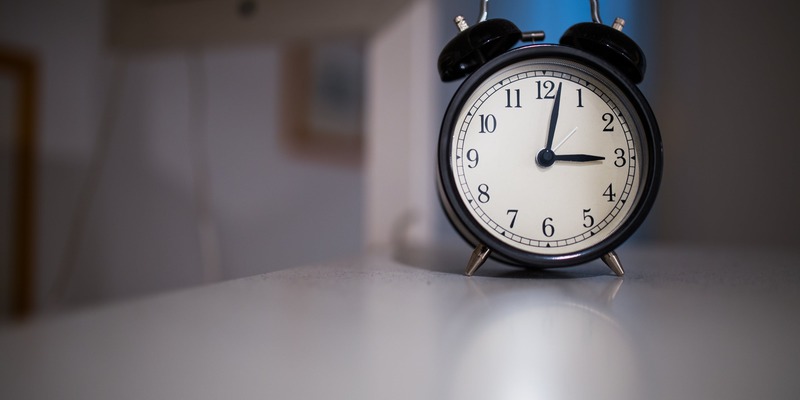What you should know about the 16:8 diet before you start fasting

Silicon Valley moguls, celebrities and social media influencers prescribe the 16:8 diet, a form of intermittent fasting also known as the 8-hour diet. Proponents claim that restricting eating times - eating during an 8-hour window each day and fasting the rest of the time - helps with everything from weight loss to lowering the risk of chronic disease.
The problem with this popular method is that you don't make decisions based on how full or hungry you feel, but on a limited window of time - a mindset that can backfire in the long run if you're not careful. Here's what you need to know about 16:8 fasting before you start missing meals.
What is the 16:8 diet?
The 16:8 diet is a type of temporary fasting done to achieve better health or to lose weight. (The 5:2 diet followed by Jimmy Kimmel, where you can eat whatever you want five days a week and eat only 500 calories or less on the other two days, is also a modified form of fasting.)
On the 16:8 diet, you spend 16 hours a day eating nothing but unsweetened beverages like water, coffee and tea. The remaining eight-hour window is when you eat all your meals and snacks. Most people do this by starting their fast at night, skipping breakfast, and eating their first meal in the middle of the day. During this time, no foods are inherently off limits, but some people will follow the keto diet at mealtimes to accelerate their weight loss.
Although the concept of intermittent fasting is new to many of us, the practice is not too different from the way our ancestors probably lived: Hunt, gather, and eat during daylight hours; sleep and fast during dark hours.
Is 16:8 fasting good for weight loss?

Some studies have found that there is virtually no difference between people who fasted intermittently on a regular basis and those who simply restricted their overall calorie intake.
More and more research is showing that a better strategy is to optimize the nutritional quality of what you're already eating (vegetables, fruits, lean protein, whole grains and healthy fats) versus fasting or counting calories. Science also suggests that any potential benefit of fasting while eating is quickly negated when appetite-suppressing hormones shift gears to make you feel even hungrier than you felt at the start of the cycle.
However, some dieters may benefit from daily fasting if you have difficulty sticking to prescribed meal plans or restrictive diets.
Is fasting 16 hours a day healthy?
Forms of intermittent fasting such as the 16:8 diet are based on the concept that fasting reduces oxidative stress in the body, which can reduce inflammation and the risk of chronic disease.
There is also a theory that fasting gives your vital organs, digestive and absorptive hormones, and metabolic functions a "break," according to a recent study published in the journal Cell Metabolism. Because our bodies secrete insulin to help our cells absorb sugar, fasting is associated with reducing our susceptibility to insulin resistance over time. High insulin levels ultimately put us at risk for a whole host of diseases.
However, research has also linked fasting to an increase in LDL cholesterol. Intermittent fasting can lead to dizziness and nausea and cause periods of low blood sugar and dehydration. Although most 16:8 enthusiasts drink water during fasting, it may not be enough - remember, food itself provides a lot of water.
I also have a much deeper concern about the disordered eating behaviors that can result from intermittent fasting. Research shows that fasting for a period of time, followed by a limited window of opportunity to eat, sets the stage for overeating. It is a cycle that is difficult to get out of because it interferes with our body's natural hunger signals and metabolism. Restricted eating can also lead to an increased risk of depression and anxiety.
This is especially true for women who have a history of developing eating disorders. The allotted periods of restriction followed by food intake can lead to binge eating, which cannot (and should not) be ignored. Fasting and binge eating periods are considered risk factors for eating disorders.
Should you try fasting 16:8?
Ultimately, it's a personal decision. But there are a few useful behaviors you can try without committing to the riskier elements of 16-hour fasting. The first is to better understand mindfulness and how it relates to your food choices. Consider these questions at the outset when deciding when and what to eat.
Are you always eating mindfully?
Many of us eat out of situations rather than based on hunger pangs. Case in point: If you have ever gone to the movies after eating and suddenly got a craving for popcorn, you are one of those who eat out of the situation.
If you become aware of the moments when you eat, you may become aware of patterns that you didn't notice before. Let's say you're a person who loves to snack while watching TV. If you fast after 8 p.m., you've automatically reduced the hours of your post-dinner snacking.
Are you getting enough sleep?

If you've cut out nighttime snacking, that alone could help you get to bed earlier - a very important component in any weight loss plan. Seven hours of sleep a night has been linked to better weight management, lower risk of chronic disease and improved metabolism.
The bottom line:
It's simply not feasible for many of us to completely restrict our diets for certain periods of time in order to achieve better health. Aside from being socially difficult (who wants to skip happy hour or dinner with friends?), self-imposed rules just aren't as joyful as the right information and choices that empower you, not hold you back. It's best to find ways to make eating nutritious foods work for you in the context of your daily life. If you're thinking about intermittent fasting, I'd encourage you to try it by starting small and keeping it as simple as possible: Close your kitchen after dinner, try to get more sleep, and sit down for a hearty breakfast at your usual time tomorrow.
More information
Always consult your healthcare provider to ensure that the information displayed on this page applies to your personal circumstances.


















